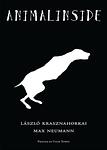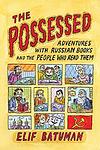The Greatest Hungarian, Turkish "Fiction" Books Since 1990
Click to learn how this list is calculated.
This list represents a comprehensive and trusted collection of the greatest books. Developed through a specialized algorithm, it brings together 300 'best of' book lists to form a definitive guide to the world's most acclaimed books. For those interested in how these books are chosen, additional details can be found on the rankings page.
Genres
Countries
Date Range
Reading Statistics
Click the button below to see how many of these books you've read!
Download
If you're interested in downloading this list as a CSV file for use in a spreadsheet application, you can easily do so by clicking the button below. Please note that to ensure a manageable file size and faster download, the CSV will include details for only the first 500 books.
Download-
1. My Name is Red by Orhan Pamuk
Set in the late 16th century Ottoman Empire, this novel explores the conflict between East and West, tradition and innovation, through the lens of miniaturist painters. When a renowned artist is murdered, his colleagues must solve the mystery while grappling with the changes in their art brought about by the western Renaissance. This complex narrative intertwines love, art, religion, and power, offering a deep exploration of the struggles between old and new.
-
2. Snow by Orhan Pamuk
Set in the small city of Kars in northeastern Turkey, the novel follows a Turkish poet who has spent several years in political exile in Germany. He returns to Turkey during a time of political unrest, with tensions high between religious and secular factions. As he becomes embroiled in the turmoil, he also becomes involved in a romantic relationship with a beautiful woman. The city is cut off from the rest of the world by a relentless snowstorm, leading to a series of tragic events. The novel is a contemplation on love, faith, and the tensions between tradition and modernity.
-
3. Celestial Harmonies by Peter Esterhazy
"Celestial Harmonies" is a historical novel that tells the story of the aristocratic Esterházy family, tracing their lineage from the late Middle Ages to the present day. The narrative is divided into two parts, with the first part featuring a series of vignettes about the family's ancestors, while the second part focuses on the experiences of the narrator's father under the Communist regime in Hungary. The novel is characterized by its intricate structure, complex themes, and lush, poetic language, offering a rich exploration of Hungarian history, family dynamics, and the human condition.
-
4. Life is a Carawanserai Has Two Doors I Went in One I Came out the Other by Emine Sevgi Özdamar
This novel follows the life of a young Turkish girl growing up in the 1950s and 60s, exploring her experiences in a rapidly changing society. The protagonist navigates the complexities of her family life, her struggle with her identity and her eventual emigration to Germany. The book explores themes of female empowerment, cultural clashes, and the immigrant experience, all told through a unique narrative style that blends reality with dreams and folktales.
-
5. The Black Book by Orhan Pamuk
The novel focuses on a man searching for his wife in Istanbul, who disappeared without a trace. In his search, he discovers a secret, surreal world in the city and starts to understand his wife's involvement in political activism. The narrative is interwoven with stories from a column written by his wife's half-brother, which the protagonist believes may hold clues to her disappearance. The book is a complex exploration of identity, storytelling, and the role of literature in society.
-
6. Jadviga Párnája by Pál Závada
"Jadviga Párnája" is a historical novel set in a Hungarian village at the turn of the 20th century. It delves into the life of a young woman named Jadviga, who is of Polish descent, and her marriage to a Hungarian man, András. The narrative unfolds through a series of letters, diary entries, and other documents, painting a vivid picture of rural life, social norms, and the personal struggles of the characters. The novel explores themes of love, fidelity, identity, and the complexities of human relationships against the backdrop of a society grappling with change and the influences of modernity.
-
7. The Forty Rules of Love by Elif Shafak
This novel intertwines two parallel narratives, one set in the 13th century and one in the modern day. The contemporary story follows a discontented American housewife who, while working as a reader for a literary agency, comes across a novel about the 13th-century poet Rumi and his spiritual mentor, Shams of Tabriz. As she delves into their story, she uncovers Shams' forty rules of love and begins to question her own life and relationships. The historical narrative, on the other hand, explores the transformative friendship between Rumi and Shams, and how their bond revolutionized Rumi's poetry and outlook on life.
-
8. The Book Of Fathers by Miklós Vámos
"The Book of Fathers" chronicles the lives of twelve generations of men from a Hungarian family, spanning over 300 years from the 18th century to the modern day. Each chapter focuses on one descendant, capturing the historical and personal challenges they face, from the rise and fall of empires to the intimate struggles of love and loss. The novel weaves a tapestry of Hungarian history and the family's legacy, marked by a mystical diary that is passed down from father to son, which possesses the power to influence the fate of its keeper. Through the generations, the book becomes a symbol of the family's heritage and the enduring connection between the past and the future.
-
9. The Museum Of Innocence by Orhan Pamuk
This novel delves into the obsessive love of Kemal, a wealthy Istanbulite, for Füsun, a distant relative and a shopgirl, which begins in 1975 and spans over 30 years. After a brief affair, Füsun marries another man, but Kemal's love remains unyielding. He starts collecting objects that remind him of his love for her, eventually creating a museum dedicated to their relationship. Set against the backdrop of Istanbul's changing society, the story explores themes of love, longing, class, and the power of memory, as Kemal's life becomes a testament to his unattainable desire, encapsulated within the walls of his museum.
-
10. Animalinside by László Krasznahorkai, Max Neumann
"Animalinside" is a haunting and surreal novella that delves into the mind of a narrator who becomes consumed by an animalistic alter ego. As the protagonist's thoughts and actions blur the line between human and animal, the narrative takes on a dark and disorienting tone, exploring themes of identity, violence, and the primal instincts that lie within us all. Through the collaboration of Krasznahorkai's mesmerizing prose and Neumann's striking illustrations, "Animalinside" offers a mesmerizing and thought-provoking exploration of the human psyche.
-
11. Gergő és Az álomfogók by Gyula Böszörményi
In this enchanting tale, a young boy named Gergő discovers a mysterious world of dream catchers who are responsible for protecting dreams from the nightmares that seek to disrupt them. As Gergő embarks on a thrilling adventure, he learns about the delicate balance between the dream world and reality, and the importance of confronting one's fears. With the help of new friends and his own courage, Gergő must navigate through this fantastical realm to ensure that the harmony of dreams is preserved for himself and others. Along the way, he gains insights into bravery, friendship, and the power of imagination.
-
12. The Possessed by Elif Batuman
"The Possessed" is a compelling narrative that combines memoir, criticism, and travel writing to explore the author's deep fascination with Russian literature. Through her experiences as a graduate student at Stanford, her travels to Turkey, Russia, and Uzbekistan, and her encounters with other scholars, the author delves into the works of great Russian authors such as Tolstoy, Dostoevsky, and Chekhov, while also reflecting on the nature of literature, identity, and the human condition.
-
13. The Bastard of Istanbul by Elif Shafak
"The Bastard of Istanbul" is a novel that tells the story of two families, one Turkish and one Armenian American. It explores the deep, intricate history between the two nations through the eyes of the characters, while also tackling themes of identity, memory, and the past. The narrative unfolds through the perspectives of the women in both families, who carry the burden of their ancestors' secrets, and a young man haunted by the ghost of a long-dead Armenian. The novel delves into the complexities of love, family, and the lasting effects of the Armenian genocide on its descendants.
-
14. állítsátok Meg Terézanyut! by Zsuzsa Rácz
"Állítsátok meg Terézanyut!" is a comedic novel that delves into the complexities of family life through the lens of Hungarian culture. The story centers around a middle-aged woman whose children have grown up and are leading their own lives, leaving her to navigate the challenges of an empty nest. As she attempts to maintain control over her family and their affairs, her overbearing nature leads to a series of humorous and heartwarming misadventures. The novel explores themes of motherhood, independence, and the evolving dynamics of familial relationships, all while offering a satirical look at the generational gaps and societal expectations within a modern family setting.
-
15. Parallel Stories by Péter Nádas
This novel is a vast and intricate narrative that weaves together the lives of characters across different generations and locations, primarily in Hungary and Germany, spanning from the 1930s to the 1980s. Through a series of interconnected stories, the book explores themes of identity, history, sexuality, and politics, delving deep into the personal and collective experiences of its characters. The narrative structure is complex, with a rich tapestry of details and a deep psychological insight into human nature, reflecting on the impact of historical events on individual lives and the interconnectedness of human experiences across time and space.
Reading Statistics
Click the button below to see how many of these books you've read!
Download
If you're interested in downloading this list as a CSV file for use in a spreadsheet application, you can easily do so by clicking the button below. Please note that to ensure a manageable file size and faster download, the CSV will include details for only the first 500 books.
Download









